Dr. Paul von Bünau
Managing Director (CEO)
paul.buenau@idalab.de
+49 173 24 16 000
A mathematician by training, Paul’s focus today is on strategic advice around artificial intelligence. Since 2013, he has supported numerous biotech, pharma and medical companies on how to move forward with AI technology.
He lives in Berlin with his partner Louise East and two kids.
Background PhD Machine Learning with applications in Neuroscience (TU Berlin), M.Sc. Pure Mathematics (Uni St Andrews), B.Sc. in Computer Science with Mathematics and Physics (Uni Potsdam).
Selected Engagements
-
Client
Multinational healthcare delivery company and medical device OEM focused on end-stage renal disease.
Background
With improvements in medical device mechanics exhausted, our client shifted focus to improving patient outcomes through data and AI. Though rich in data and patient relationships, a gap in talent and experience was holding back innovation.
Approach
Based on a comprehensive mapping of existing capabilities, we designed a strategic innovation program centred around a few selected opportunities.. Spearheading the implementation at first, we then built a dedicated multi-site AI unit taking over the longer-term transformation.
Outcome
The data and AI innovation unit is now independently delivering on a wide range of projects with teams in US, Europe and China.
Key takeaway
Companies with a strong engineering culture underestimate the degree of change required to add data- and AI-driven solutions. Beyond the addition of skills, this includes a fresh look at business models and data governance across the organization.
-
Client
Early-stage drug discovery startup with teams in Boston, New Jersey and Berlin.
Background
Biotech startups must show value quickly, yet building competitive advantage from AI takes time: it requires the right talent, technology, and data, all aligned under leadership focused on answering the right questions with AI.
Approach
To build trust and momentum quickly, we identified and executed two quick-win projects, clearly demonstrating the contribution of AI to de-risking R&D. Over the course of 18 months, we worked with the leadership on finding the right talent and building a sustainable AI team.
Outcome
Today, our client’s AI team operates fully independently and plays a central role in the R&D platform strategy.
Key takeaway
Building the first AI team for an early stage startup is a building-the-plane-while-flying-it experience. Laser-focusing on what matters is what matters.
-
Client
Health technology market access service provider focused on rare disease under the German AMNOG.
Background
With the introduction of the EU Joint Clinical Assessment, companies must now prove the value of every new therapy across all PICOs required by each member state, leading to a dramatic increase in workload. Without technology, this is impossible to complete within the EU’s tight timeline.
Approach
Starting from a granular analysis of the entire value-dossier production process, we prioritized a number of steps with high potential for AI-augmentation. Within six months, we built a fully functional software for the automatic interpretation of statistical endpoint results tables.
Outcome
The AI-powered endpoint result interpreter eliminates more than 60% of the routine work and is used by our client’s medical writers every day, freeing up time to focus on what really matters: finding the best possible value strategy for innovative therapies.
Key takeaway
Building solutions for complex life science workflows requires a team that is fluent in both worlds: AI and healthcare.
Perspectives
Selected Publications
A practical AI system for automated endpoint result interpretation: architecture, algorithms and ROI
In preparation
Understanding the Impact of Machine Learning Models for Alarm Reduction by Simulating Intensive Care Units
In preparation
A standardized clinical data harmonization pipeline for scalable AI application deployment: Validation and usability study
E Williams et al.
JMIR Medical Informatics 11, 2023 [doi]
Predicting success of phase III trials in oncology
S Hegge et al.
medRxiv, 2020 [doi]
Towards an unsupervised adaptation of LDA for Brain-Computer-Interfaces
C Vidaurre et al.
IEEE Transactions on Biomedical Engineering, 2010 [doi]
Finding stationary subspaces in multivariate time series
P Bünau et al.
Physical Review Letters 103 (21), 2009 [doi]
See Google scholar for a full list of publications.
Teaching
-
Europa-Universität Viadrina Frankfurt (Oder)
2025The promise of AI in the healthcare sector is enormous, given its vast amounts of data, complex decision making and pressures on cost and quality. To make this a reality, a multi-faceted landscape of different regulatory requirements needs to be navigated, from the EU's AI Act to medical device regulations, the GDPR and rules around clinical trials. In four concrete case studies, this seminar provides a compact overview of the regulatory landscape and compliant solution strategies for using AI to improve patients’ lives.
-
Europa-Universität Viadrina Frankfurt (Oder)
2024Artificial intelligence (AI) is poised to become the transformative technology of the 21st century and has already touched almost every part of the global economy, and many of our personal lives. Even so, digging beyond the initial befuddlement of ChatGPT and other technology demos, the key question remains: how to make use of this new technology in a way that is meaningful, economically viable, legally compliant, and desirable for society as a whole? This is what AI strategy is about. This seminar provides a compact basic training in AI strategy from a practical perspective. After establishing a clear conceptual understanding of what AI is (and isn't), we will explore the many facets of assessing the viability, feasibility and desirability of potential AI use cases, and how to make their eventual implementation successful.




